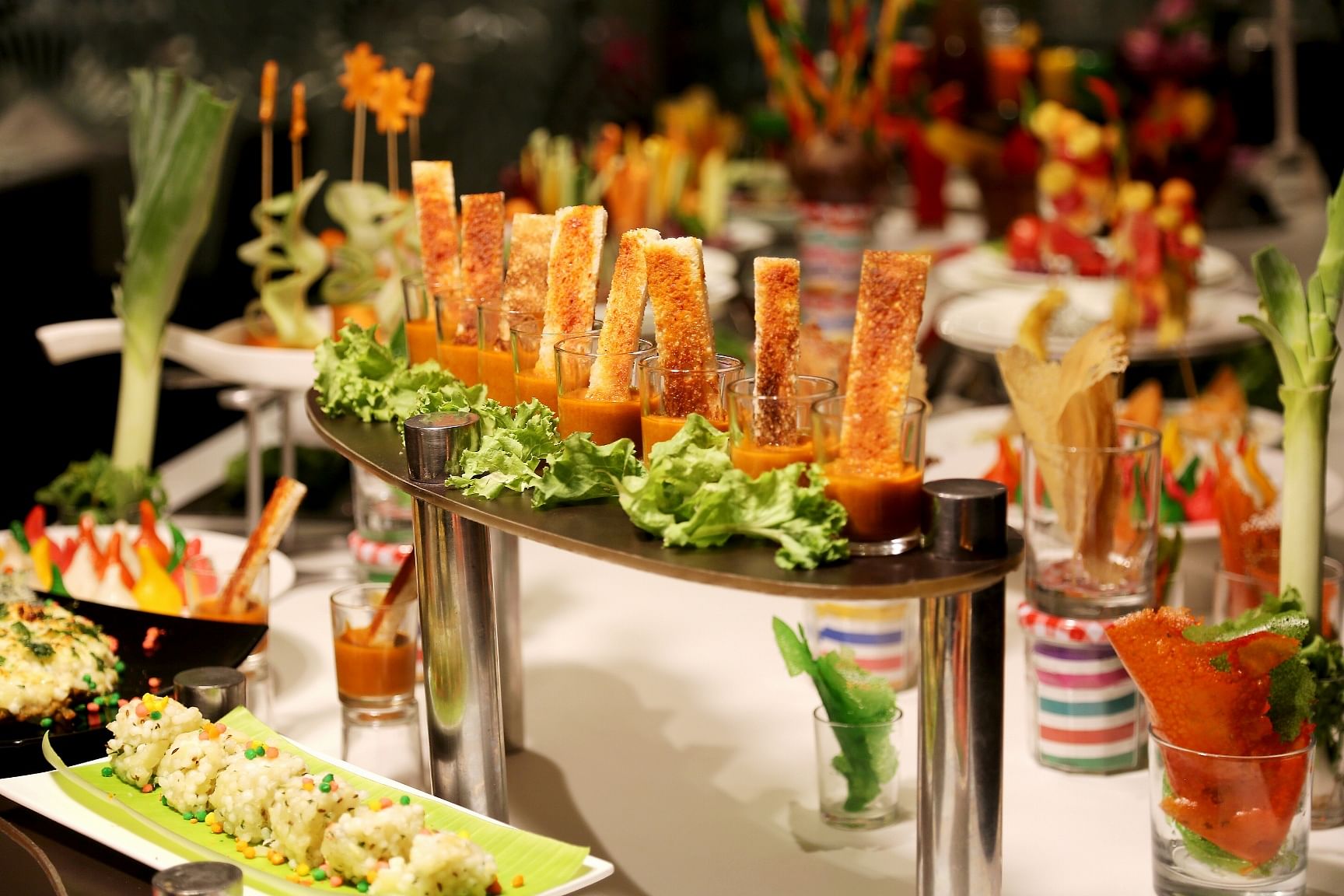
Massimo Montanari, the culinary historian in his work ‘Food is Culture’ suggests that it is the invention of cooking and its subsequent formalisation through written and oral recipes that allowed the concept of food to acquire a language of its own, thereby morphing itself into a cultural product.
Food, therefore, is not only about eating, but also the stories surrounding it. The memories, the act of cooking and the feeling of fellowship that comes with gathering around a table for a meal are all part of it.
friends and family over food and drinks.
Chefs and restaurants try to tap into these same emotions when organising food festivals. With access to cuisines of the world, harder-to-find ingredients and international chefs made easier, it has become easier for people to try recipes from around the globe.
Food has grown to be one of the best and more inexpensive ways to explore new cultures. However, you don’t have to learn your way around the kitchen to do so. Along with restaurants that serve cuisines from across the world, chefs have started to dabble in the world of food festivals.
Over the past few years, there has been an influx of food festivals across the country from the Palate Food Festival to Sula Fest.
What can we attribute its popularity to? With many new restaurants coming up, food festivals act as a great way to
stay on top, suggests Abhijit Saha, chef restaurateur.
“It is a great way to offer something new, while also attracting customers.” Restaurants hope to provide something new and exciting and hence, organise around seasonal ingredients, visiting chefs, important dates or a new menu.
“It is also a great platform to communicate with your customers. And since most celebrations feature food, we create events around festivals as well,” adds Abhijit.
Provided the food is irresistible, such festivals are a sure-shot way of keeping your current customers happy while tapping into new clientèle.
For foodies and people who are curious about food, such festivals provide them with an opportunity to explore the unusual.
up in traditional attire to add to the vibe.
“Food festivals allow people to gain insight into the culture and traditions of a new place. Besides, it caters to a large audience, from children to adults, making it is a great way to initiate people into new tastes,” says Jatinder Pal Singh, executive chef at Sheraton Grand
Bengaluru Whitefield Hotel & Convention Center. International festivals such as the Oktoberfest, which would otherwise be far removed from the Indian context, has been popularised and made into a much-awaited event, thanks to small events.
Food festivals are organised to be an all-round experience. It is an opportunity to connect with friends and family over some drinks, food and often live music.
“It has to be relevant, authentic and unique. It is also important to curate the entire experience for them, from the ambience to themed outfits for the team,” shares chef Singh.
Michael Twitty in his work ‘The Cooking Gene’ traces his ancestry from Africa to America, from slavery to freedom through food. What he so eloquently proves though his book is that food can act as a blueprint to your roots. As Twitty puts it, food is “all we have to go to in order to feel our way into our past.”
The many food fetes in the city provide its growing migrant population with a platform to connect with new people and introduce them to their culture. It gives the experts an opportunity to experiment with new and old recipes.
“It allow us to get creative, but we have to work with what customers want as well. Festival season usually makes people crave for home food. For example, Koramangala has a large Keralite population, and so I organise a Kerala festival around Onam time,” shares Chef Balaji Balachander, chef and director of ‘Salt’.